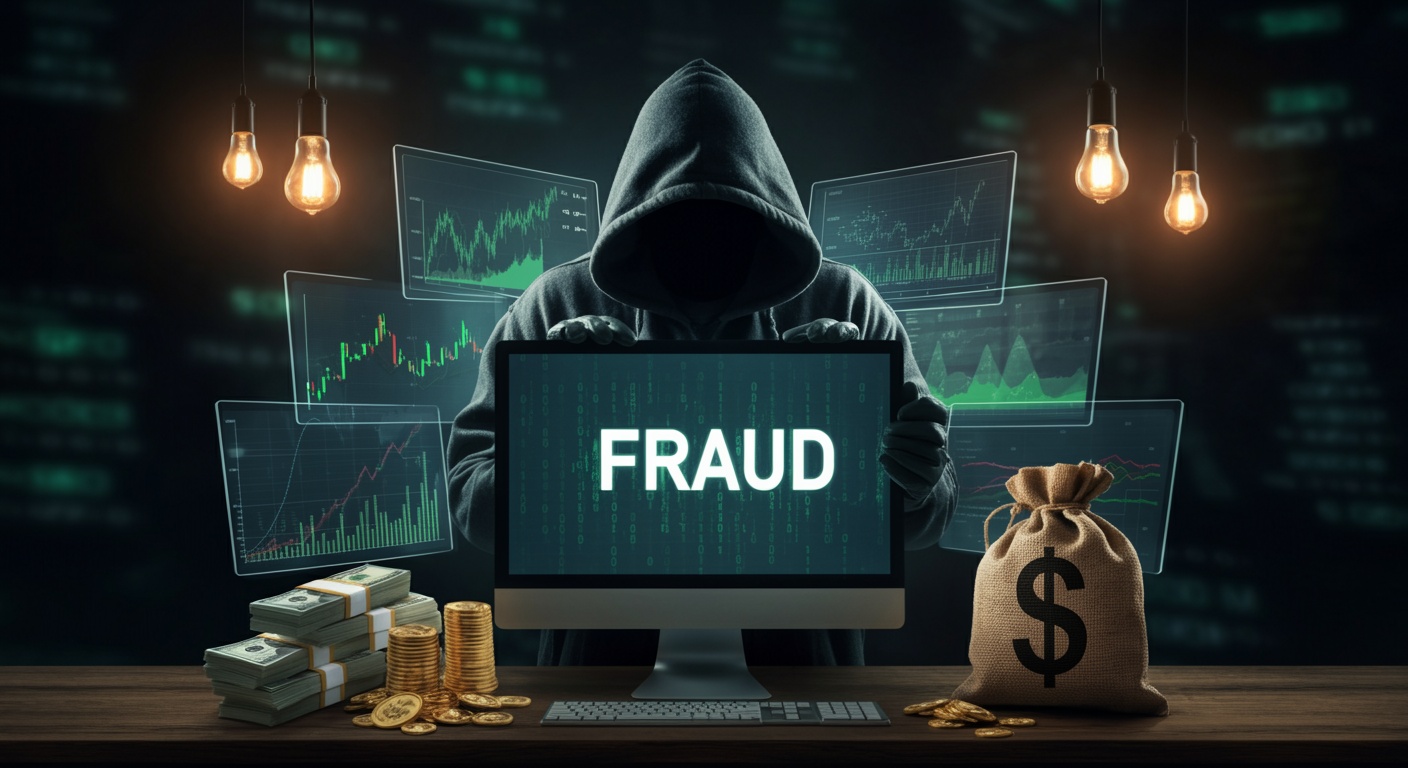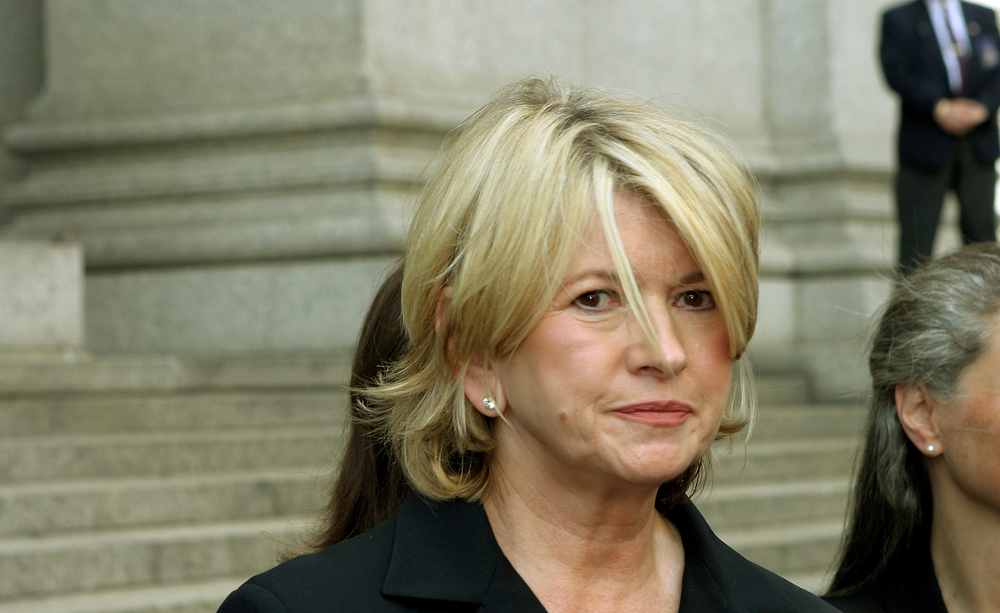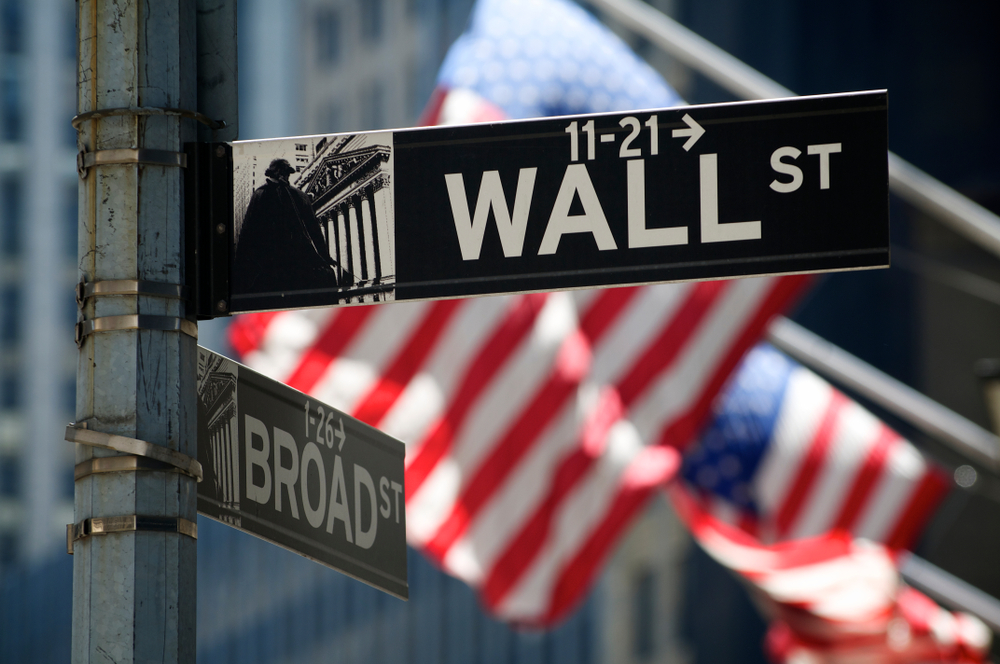Scams thrive on confidence, charm, and a little bit of smoke and mirrors—but eventually, the truth always catches up. From slick con artists who tricked entire industries to fraudsters who built empires on lies, these stories remind us that no scheme lasts forever. The bigger the scam, the harder the fall, and some of these downfalls were spectacular. What makes them fascinating isn’t just the crimes themselves, but how far these people were willing to go—and what happened once the curtain was pulled back. Some ended up behind bars, others vanished into obscurity, and a few tried to rebuild their reputations from the rubble. These are the 15 infamous scammers who thought they’d never get caught, and the price they ultimately paid.
1. The King Of Ponzi Spin

Bernie Madoff is perhaps one of the most notorious fraudsters in history, having orchestrated a Ponzi scheme that defrauded thousands of investors out of billions of dollars. His scheme came crashing down in 2008 when he confessed to his sons, who then reported him to authorities. According to the BBC, Madoff was sentenced to 150 years in prison in 2009. Despite his incarceration, the ripple effects of his fraud still linger, impacting countless victims and their families.
Madoff passed away in April 2021 while serving his sentence in federal prison. His story is a stark reminder of how easily trust can be manipulated, even by those with towering reputations. The aftermath of Madoff’s scheme led to more stringent regulations in the investment industry. Though his legacy remains infamous, it also serves as a cautionary tale of unchecked greed and deception.
2. The Enron Scandal

Jeffrey Skilling, former CEO of Enron, played a pivotal role in one of the most egregious accounting frauds in corporate history. According to Investopedia, under his leadership, Enron used complex accounting schemes to hide its debt and inflate earnings, ultimately leading to the company’s collapse in 2001. The scandal wiped out thousands of jobs and billions in shareholder value. Skilling was convicted of multiple counts of fraud and insider trading in 2006.
After serving more than 12 years in prison, Skilling was released in 2019. In the years since his release, he has reportedly been working on a new venture in the energy sector. The Enron scandal led to significant changes in financial regulations, including the Sarbanes-Oxley Act, aimed at improving corporate governance and financial practices. Skilling’s story is a testament to the consequences of corporate malfeasance and the long road to redemption.
3. The Celebrity Insider Trading Case

Martha Stewart, the queen of lifestyle brands, became entangled in a high-profile insider trading case in 2001. She was accused of selling her shares in biotech company ImClone Systems based on non-public information, just before the stock price plummeted. According to the New York Times, Stewart was found guilty of obstruction of justice, making false statements, and conspiracy in 2004. She served five months in federal prison and an additional five months under house arrest.
Despite the conviction, Stewart managed to rebuild her brand and reputation post-incarceration. She returned to her media empire and expanded her ventures, even gaining a newfound fanbase. Her ability to bounce back from scandal showcases her resilience and business acumen. Martha Stewart’s journey highlights how a well-managed comeback can sometimes overshadow past transgressions.
4. The Real Wolf Of Wall Street

Jordan Belfort, famously known as the “Wolf of Wall Street,” ran a penny-stock scam through his brokerage firm, Stratton Oakmont, that defrauded investors of millions. His life of excess and corruption was widely publicized, particularly after his memoir was adapted into a blockbuster film. Belfort was sentenced to four years in prison in 2003 but served only 22 months after agreeing to cooperate with authorities. His release marked the beginning of a new chapter as a motivational speaker and author.
Today, Belfort continues to share his story worldwide, albeit controversially, as some view his new career as exploitative of his past crimes. He has claimed to repay a significant portion of the money owed to his victims, though skepticism remains. Belfort’s tale serves as a tale of redemption for some and a cautionary narrative for others. His story remains a vivid reminder of the thin line between success and moral compromise.
5. The Billion-Dollar Fraudster

Allen Stanford, once a renowned financier and sponsor of international cricket, was convicted for running a Ponzi scheme that defrauded investors of over $7 billion. Stanford presented his financial empire as legitimate, luring investors with promises of high returns on certificates of deposit at his offshore bank. The scheme was uncovered in 2009, leading to his arrest and subsequent conviction on charges of fraud, conspiracy, and obstruction in 2012.
Stanford is currently serving a 110-year sentence in a Florida prison, with appeals for a reduced sentence being unsuccessful. The fallout from his fraud left thousands of investors in financial ruin, and the recovery of funds has been a slow and arduous process. His empire, once glittering with the sheen of success, was revealed to be built on deception and lies. The Stanford case underscores the importance of diligence and scrutiny in financial dealings.
6. The HealthSouth Scandal

Richard Scrushy, founder of HealthSouth Corporation, was at the center of a massive accounting fraud that inflated the company’s earnings by over $2 billion. The scandal came to light in 2003, revealing that Scrushy and his executives had falsified financial statements to meet Wall Street expectations. Despite the overwhelming evidence, Scrushy was acquitted of all criminal charges in 2005, a verdict that shocked many. However, he was later convicted of bribery and mail fraud in a separate case involving political corruption.
Scrushy served five years in prison and was released in 2012. He attempts to keep a low profile but occasionally resurfaces in the public eye through interviews and speaking engagements. The HealthSouth scandal left a lasting impact on the healthcare industry, leading to increased scrutiny and regulatory changes. Scrushy’s story illustrates the complex interplay between corporate responsibility and personal accountability.
7. The Fall of The Fake Tech Giant

Elizabeth Holmes, the once-celebrated founder of Theranos, was hailed as a visionary in the tech industry. Her company claimed to revolutionize blood testing technology, but investigations revealed that the technology was flawed and the claims were fraudulent. The Theranos scandal unraveled publicly in 2015, leading to Holmes being charged with multiple counts of fraud and conspiracy. The case highlighted the pressures and pitfalls of Silicon Valley’s “fake it till you make it” culture.
Holmes’ trial commenced in 2021, drawing significant media attention due to the dramatic rise and fall of her company. If convicted, she faces significant jail time, marking a stark contrast to her previous image as a trailblazing entrepreneur. The Theranos saga serves as a critical lesson in due diligence and the dangers of unchecked ambition. Holmes’ journey from fame to infamy emphasizes the need for transparency and integrity in business.
8. The Collapsed Empire Of Tyco

Dennis Kozlowski, former CEO of Tyco International, became infamous for his extravagant lifestyle funded by company coffers. His leadership saw Tyco embroiled in a massive scandal involving unauthorized bonuses, art purchases, and lavish parties. In 2005, he was convicted of grand larceny, securities fraud, and other charges, leading to a sentence of up to 25 years in prison. Kozlowski’s case was emblematic of corporate greed and the misuse of shareholder funds.
He was granted parole in 2014 after serving over six years in prison. Following his release, Kozlowski has kept a relatively low profile, occasionally speaking about corporate ethics and governance. The Tyco scandal prompted reforms in corporate practices, highlighting the importance of transparency and accountability. Kozlowski’s rise and fall are a testament to the perils of excess and the critical role of ethical leadership.
9. The Insider Trading Debacle

Raj Rajaratnam, the founder of Galleon Group hedge fund, was at the heart of one of the largest insider trading cases in the United States. His firm was involved in a wide-ranging investigation that uncovered illegal trades based on confidential information from various companies. In 2011, Rajaratnam was convicted on multiple counts of securities fraud and conspiracy and sentenced to 11 years in prison. His case was notable for the use of wiretaps, a first in insider trading investigations.
He was released early in 2019 due to health concerns, having served the majority of his sentence. The Rajaratnam case marked a significant moment in the prosecution of financial crimes, setting a precedent for future investigations. His actions led to increased scrutiny of hedge funds and insider trading practices. Despite his fall from grace, Rajaratnam’s story serves as a cautionary tale about the consequences of trading on illegal information.
10. The OG Ponzi Scheme

Charles Ponzi is the namesake of the infamous Ponzi scheme, a type of fraud that involves paying returns to earlier investors using the capital from newer ones. In the 1920s, Ponzi promised high returns through investments in international postal reply coupons, luring thousands into his scheme. His operation collapsed when authorities investigated, revealing the lack of real investment activity. Ponzi was arrested and sentenced to prison, serving several years before being deported to Italy.
Ponzi lived the rest of his life in relative obscurity, passing away in poverty in 1949. His scheme has become a classic example of financial fraud, warning investors of the dangers of too-good-to-be-true returns. The Ponzi scheme model has been replicated numerous times, each time reinforcing the lessons of Ponzi’s original deception. His story underscores the timeless nature of fraud and the importance of vigilance in investments.
11. The Crash Of MF Global

Jon Corzine, former CEO of MF Global, was at the helm when the brokerage firm collapsed in 2011 after risky bets on European debt led to massive losses. The firm’s bankruptcy was one of the largest in U.S. history, resulting in the loss of over a billion dollars in customer funds. Corzine faced intense scrutiny and was charged with failing to supervise the firm properly but avoided criminal charges. His involvement in the collapse of MF Global severely tarnished his reputation.
After the scandal, Corzine largely stepped away from public life, focusing on philanthropic activities and private investments. The MF Global debacle served as a reminder of the risks inherent in financial speculation and the need for responsible leadership. The case prompted discussions about regulatory oversight and the protection of customer funds. Corzine’s story is a cautionary example of the consequences of aggressive financial strategies.
12. The Billion-Dollar Sports Scam

Robert Allen Stanford, once a billionaire and a prominent figure in sports sponsorship, orchestrated a massive Ponzi scheme through his offshore bank, Stanford International Bank. The scheme, which promised high returns on certificate of deposits, led to billions in losses for investors. Stanford was convicted in 2012 on charges of fraud, conspiracy, and obstruction of justice and is currently serving a 110-year prison sentence. His case highlighted the vulnerabilities in financial regulations and the impact of fraudulent schemes on investors worldwide.
Since his conviction, attempts to reduce his sentence have been unsuccessful, and he remains incarcerated. The collapse of Stanford’s empire left a lasting impact, with many victims still seeking restitution. His fraudulent activities prompted calls for better regulatory frameworks and investor protections. Stanford’s story is a stark reminder of the devastating effects of white-collar crime on individuals and the global financial system.
13. The Investment Con

Bernie Ebbers, former CEO of telecommunications giant WorldCom, was involved in an accounting scandal that led to the largest bankruptcy in U.S. history at the time. The company inflated its assets by billions, misleading investors and regulators. In 2005, Ebbers was convicted of fraud, conspiracy, and filing false documents with regulators, resulting in a 25-year prison sentence. The WorldCom scandal was a catalyst for changes in corporate governance and financial reporting standards.
Ebbers was released from prison in December 2019 due to health concerns but passed away shortly after in February 2020. His role in the WorldCom scandal remains a defining moment in the history of corporate fraud. The case emphasized the need for transparency and accountability in corporate financial practices. Ebbers’ legacy is a sobering reminder of the destructive power of corporate malfeasance.
14. The Deceptive ‘Clean’ Deal

Barry Minkow, once a teenage entrepreneur, founded ZZZZ Best, a carpet-cleaning company that was revealed to be a front for a massive Ponzi scheme. He used fake documents and non-existent contracts to inflate the company’s value, defrauding investors of millions. Minkow was sentenced to 25 years in prison in 1988 but served only seven years after cooperating with authorities. Upon his release, he reinvented himself as a fraud investigator and pastor.
However, old habits die hard, and Minkow was caught committing fraud again several years later, this time for insider trading and embezzlement. He returned to prison in 2011 and was released in 2019. Minkow’s story is a complex narrative of redemption, relapse, and the enduring struggle with ethical boundaries. His case is a vivid example of how past deceptions can overshadow attempts at reform.
15. The Risky Bet That Didn’t Pay Off

Jérôme Kerviel, a former trader at Société Générale, was responsible for unauthorized trades that resulted in a staggering €4.9 billion loss for the bank in 2008. His high-risk maneuvers were initially profitable, but things spiraled out of control, leading to one of the largest trading losses in history. Kerviel was convicted of breach of trust, forgery, and unauthorized computer use, receiving a five-year sentence, two of which were suspended.
Kerviel served a few months in a French prison before being released, and his case sparked debates about the ethics and oversight within the banking industry. He maintains that the bank turned a blind eye to his activities as long as they were profitable, a claim that Société Générale denies. Kerviel’s story highlights the pressures and temptations faced by traders in high-stakes environments. It remains a poignant example of the delicate balance between ambition and ethical responsibility.
This article is for informational purposes only and should not be construed as financial advice. Consult a financial professional before making investment or other financial decisions. The author and publisher make no warranties of any kind.








